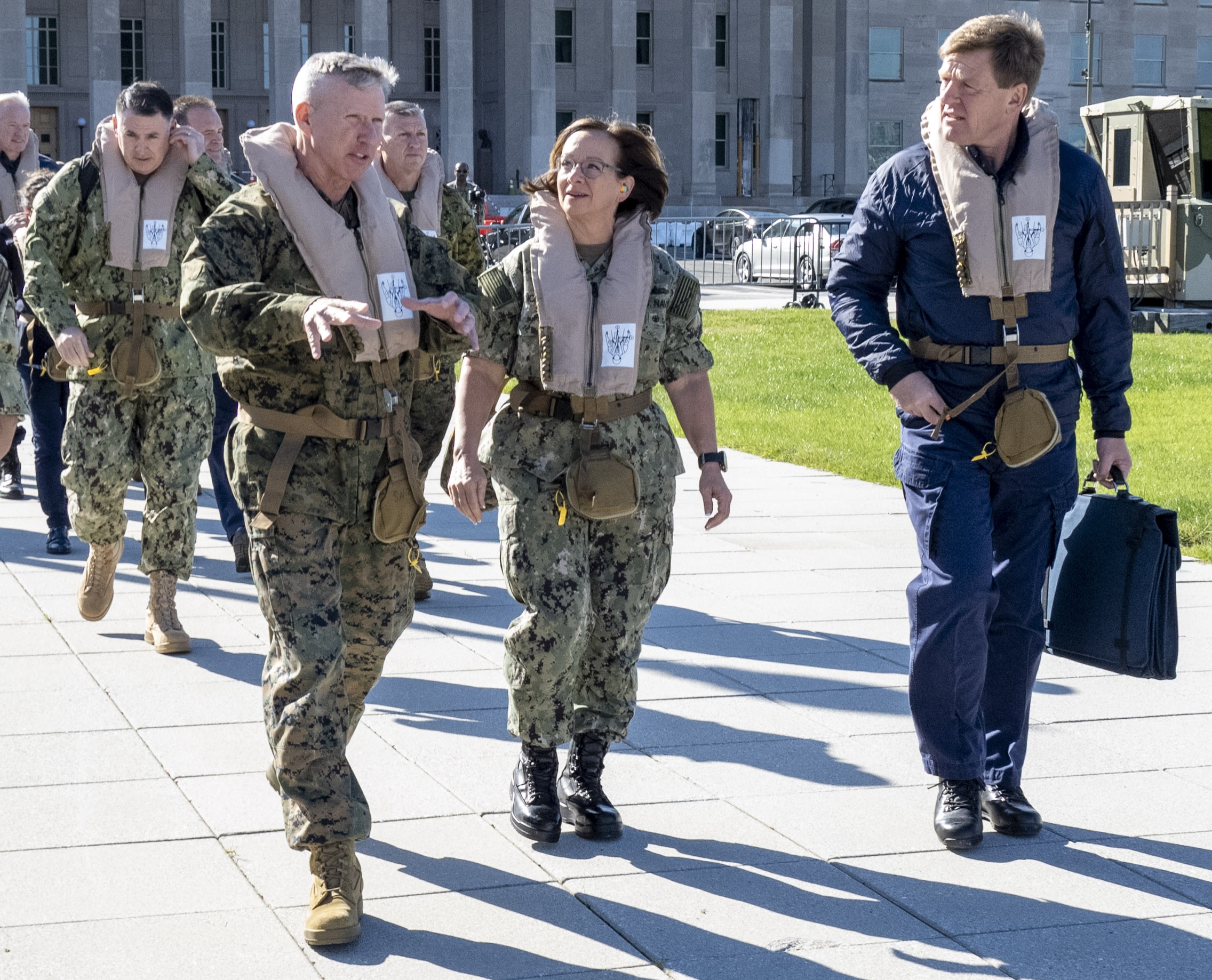
The Royal Navy’s task force has been sent to the eastern Mediterranean to “work with the U.S.” and “offer some choice,” including providing humanitarian aid and containing the war between Hamas and Israel, said the United Kingdom’s senior naval officer.
Speaking at the Center for Strategic and International Studies last week, Sir Ben Key, First Sea Lord, called the Hamas attack “an outrageous terror act” on civilians. He added that the presence of two Royal Navy amphibious ships – RFA Lyme Bay and RFA Argus – with Royal Marines onboard, naval escorts and P-8 patrol aircraft is to deter other forces or nations from entering the fighting.
Key said the United Kingdom’s growing interest in the Indo-Pacific “is a both/and, not an either/or” when it comes to its traditional emphasis on the North Atlantic and Europe. Even if the United States had to commit more naval forces to defend Taiwan, he cited the carrier cooperation agreement among the United Kingdom, France, Italy and Spain that “keeps balance” by deterring Russia’s naval ambitions.
Key also noted how Kyiv is achieving sea control by tactically using unmanned systems to counter the Kremlin’s Black Sea Fleet, in ways not seen in previous wars. The missile and drone attacks have sunk several ships, damaged others and forced some vessels to ports other than Sevastapol, he added.
Strategically, he said the impact of the Russian blockade of ports has had a major impact on the Ukrainian civilian population and economy. It also is creating a global food crisis. A naval blockade of ports shipping essentials like grain “can have far-reaching impacts on nations far away.”
The war, however, has not affected the Russian Navy’s submarine fleet. Likewise, Moscow’s strategic bomber force and nuclear missile force have not been affected by the war. Key also said the Russians have added five naval infantry brigades in recent years.
Key also noted that Finland’s admission to NATO added new complications to Russian military planning. That change, and the Kremlin’s rising casualty totals, likely mean Russia “is not going to try a territorial push” in Europe in the next five years.
When asked about the status of the Australian-United Kingdom-United States agreement, Key said, “a lot of work is going on under the bonnet,” especially in Pillar Two – the exchange of high technology advances. “Building a nuclear sub takes years; building a nuclear sub from scratch takes longer.”
Key put “seabed warfare” – protecting cables and energy pipelines – as a domain of conflict that has immense economic and strategic importance.
He said when the United Nations Covenant on the Law of the Sea was adopted, international concerns centered on the free movement of surface trade, but now vital financial and security data and crucial supplies of natural gas and petroleum lay in international waters. Key said the seabed becomes a “classic gray zone” for conflict because “it is owned by everybody.” Key added that the United Kingdom has recognized this threat and HMS Proteus, a submarine just entering the fleet, is designed for that mission. He praised the Norwegians for the way they have approached the seabed threat by combining efforts from its maritime forces with the financial and energy sectors.
Key later added that Russia’s undersea research program shows the value Moscow places on those cables and pipelines.





